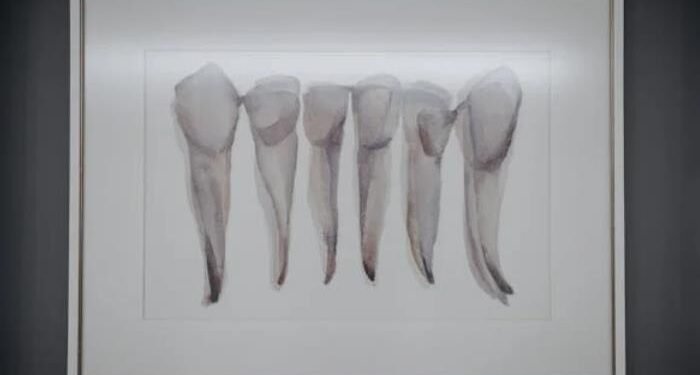Did you know that over 5 million wisdom teeth are extracted each year in the U.S. alone? If you’ve recently had a tooth extraction or are preparing for one, you might be wondering what the healing process will be like. The days following a tooth extraction can be filled with questions and concerns about what to expect, how to manage pain, and when to be worried about potential complications.
Understanding the stages of healing after a tooth extraction can ease your anxiety and help you navigate the recovery process with confidence.
The First 24 Hours: What to Expect and How to Prepare
The first 24 hours after your tooth extraction are critical for setting the stage for a successful recovery. During this time, it’s normal to experience some bleeding, swelling, and discomfort. Immediately after the procedure, your dentist will place gauze over the extraction site and ask you to bite down to help the blood clot form.
This gauze should be left in place for about 30 to 45 minutes, and you may need to replace it if the bleeding continues. Resting is key during this period—try to keep your head elevated, and avoid any strenuous activities that could increase blood flow to the area.
Swelling is also common during the first day, and it often peaks around 24 hours post-extraction. Applying an ice pack to the outside of your cheek can help reduce swelling and numb the area, providing some relief from pain. It’s also important to avoid hot foods and drinks, as well as sucking motions, like using a straw, which can dislodge the blood clot.
Why the Blood Clot After Tooth Extraction Is Crucial
The formation of a blood clot after tooth extraction is one of the most important parts of the healing process. When your tooth is removed, the body immediately begins the process of forming a clot to stop the bleeding and protect the exposed bone and nerves. This clot acts like a natural bandage, covering the wound and providing the foundation for new tissue to grow. If the blood clot is dislodged or doesn’t form properly, it can lead to a painful condition known as a dry socket, where the bone and nerves are exposed to air, food, and bacteria. This not only delays healing but also significantly increases the risk of infection. Therefore, taking care of this clot is essential for a smooth recovery.
Managing Pain and Discomfort: Tips for Relief
Pain and discomfort are natural parts of the healing process after a tooth extraction, but they can be effectively managed with the right approach. Your dentist will likely prescribe painkillers or recommend over-the-counter medications such as ibuprofen or acetaminophen to help control the pain. It’s important to take these medications as directed, even if the pain seems manageable, as they not only alleviate discomfort but also reduce inflammation.
Essential Dos and Don’ts for Post-Extraction Care
Taking care of your mouth after a tooth extraction is crucial for preventing complications and ensuring a smooth recovery. There are several key dos and don’ts to keep in mind during the first few days.
First, do keep your head elevated, especially when lying down, to help reduce bleeding and swelling. Do stick to soft foods that are easy to chew, such as yogurt, mashed potatoes, and applesauce, to avoid putting pressure on the extraction site. It’s also important to stay hydrated, but be sure to drink without using a straw, as the sucking motion can dislodge the blood clot.
On the other hand, don’t rinse your mouth too vigorously, as this can also disturb the clot. Don’t smoke or use tobacco products, as these can impede healing and increase the risk of complications like dry socket. Additionally, avoid drinking alcohol, as it can interfere with the healing process and interact with any pain medications you might be taking.
Watch for Signs of Complications: When to Call Your Dentist
While most tooth extractions heal without any issues, it’s important to be aware of the signs that something might not be right. If you notice excessive bleeding that doesn’t stop after applying pressure, or if the pain becomes severe and doesn’t improve with medication, these could be signs of a problem. Other red flags include a fever, which could indicate an infection, and a foul taste or odor in your mouth, which might be a sign of an infection or dry socket.
If you experience any of these symptoms, it’s important to contact your dentist as soon as possible. Early intervention can prevent complications from worsening and help get your recovery back on track.
Maintaining Oral Hygiene After a Tooth Extraction: Dos and Don’ts
Oral hygiene is always important, but after a tooth extraction, you need to be extra careful to avoid disrupting the healing process. In the first 24 hours, it’s best to avoid brushing your teeth near the extraction site and refrain from using mouthwash. Instead, gently rinse your mouth with warm salt water to keep the area clean. This can help reduce the risk of infection and soothe any irritation.
After the first day, you can start brushing your teeth again, but be sure to do so gently and avoid the extraction site. Use a soft-bristled toothbrush and avoid vigorous rinsing or spitting, as this can disturb the blood clot. It’s also important to avoid using commercial mouthwash until your dentist gives you the green light, as some ingredients can irritate the extraction site and slow down the healing process.
Understanding Physical Activity Restrictions: Why Taking It Easy Matters
Physical activity can have a big impact on your recovery after a tooth extraction. Engaging in strenuous activities too soon can increase blood pressure, leading to excessive bleeding at the extraction site. It’s important to rest and avoid heavy lifting, intense exercise, or any activities that could strain your body for at least a few days after the procedure.
If you’re accustomed to regular workouts, you might be eager to get back to your routine, but it’s essential to give your body the time it needs to heal. Most dentists recommend waiting at least 48 to 72 hours before resuming light exercise, and even longer for more strenuous activities. Listen to your body and consult your dentist if you’re unsure about when it’s safe to return to your normal routine.
Understanding the healing process after a tooth extraction is essential for ensuring a smooth recovery. From protecting the all-important blood clot to managing pain, following the right diet, and being mindful of your activity levels, there are several key steps to take in the days and weeks following your procedure. By paying attention to these details and following up with your dentist, you can avoid complications and get back to your normal routine as quickly as possible. Long-term care and maintaining good oral hygiene are also crucial for keeping your mouth healthy in the years to come. Remember, a successful recovery starts with understanding what to expect and taking the necessary steps to support your body’s natural healing process.












